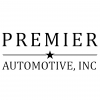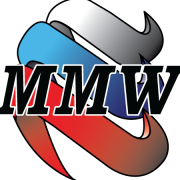I recently spoke with a friend of mine who owns a large general repair shop in the Midwest. His father founded the business in 1975. He was telling me that although he’s busy, he’s also very frustrated. When I probed him more about his frustrations, he said that it’s hard to find qualified technicians. My friend employs four technicians and is looking to hire two more. I then asked him, “How long does a technician last working for you.” He looked puzzled and replied, “I never really thought about that, but I can tell that except for one tech, most technicians don’t last working for me longer than a few years.”
Judging from personal experience as a shop owner and from what I know about the auto repair industry, I can tell you that other than a few exceptions, the turnover rate for technicians in our industry is too high. This makes me think, do we have a technician shortage or a retention problem? Have we done the best we can over the decades to provide great pay plans, benefits packages, great work environments, and the right culture to ensure that the techs we have stay with us?
Finding and hiring qualified automotive technicians is not a new phenomenon. This problem has been around for as long as I can remember. While we do need to attract people to our industry and provide the necessary training and mentorship, we also need to focus on retention. Having a revolving door and needing to hire techs every few years or so costs your company money. Big money! And that revolving door may be a sign of an even bigger issue: poor leadership, and poor employee management skills.
Here’s one more thing to consider, for the most part, technicians don’t leave one job to start a new career, they leave one shop as a technician to become a technician at another shop. The reasons why they leave can be debated, but there is one fact that we cannot deny, people don’t quit the company they work for, they usually leave because of the boss or manager they work for.
Put yourselves in the shoes of your employees. Do you have a workplace that communicates, “We appreciate you and want you to stay!”
 1
1












.thumb.jpg.2b345efc275b9df0af2bbb306a10a78a.jpg)










Recommended Posts
bstewart
I'm curious as to why your planning on switching away from Mitchell1?
It's quite frustrating that most of the good software packages only work with the biggies: Mitchell1, ROWriter or Alldata Manage, and maybe a select few more (Bolt On also works with TASCO, one that I had never heard of).
Shop owners who want good add-ons get pigeon holed into picking a certain shop management software suite.
Link to comment
Share on other sites
mspecperformance
I am actually switching over to Mitchell from RO Writer. Decision was based on cost mostly as well as Mitchell integrates the best with Bolt On Technology. It would cost me about 4k in upfront cost to upgrade my RO Writer software as well as having monthly costs of subscriptions. I can switch over to Mitchell without incurring any upfront upgrade costs and keep my subscriptions at about the same price. Also I am limited by what will integrate with WorldPac.
Link to comment
Share on other sites
tasr
Have you looked at Maxx Traxx. Been evaluating them and they seem to have a sweet setup.
Link to comment
Share on other sites
ATSAutomotive
Check out TABS AutoBiz as well.
Link to comment
Share on other sites
coyotesoftware
There are a few things I'd suggest before buying or switching business software systems that over and over again I notice that everybody does in the manufacturing market that just about nobody does in the automotive market.
1. Make a list of the capabilities your business needs.
If the software has some bell or whistle that you don't need, you don't need to buy it.
2. Look under the hood on the software you're buying.
I'm pretty much stunned over and over to see shops running proudly on databases that Microsoft abandoned 20 years ago. That's nothing to brag about. Today's state of the art is three tier architecture using .net Framework on SQL Server. Anything else is like comparing a wagon wheel with an iron rim to a Michelin tire.
3. Fact check!!
Too many buyers accept hearsay and rumors from the sales reps. Do your own homework. Ask the reps to demo the capabilities your business needs before you buy.
4. Understand that Integration matters.
The more seamlessly your applications tie together and the fewer vendors you have, the happier you'll be in the long run.
If you want to pick one of these and one of those, have lunch at a chinese buffet but don't deliberately put your business in a position where multiple vendors can blame each other for problems and leave you caught in the middle.
The Total Solution your business needs starts with a customer walking in the door and ends with your year end tax filing. And the Total Cost of ownership includes all the manual labor and time it takes you to do what the software doesn't do for you to compile the information.
5. Choose the strongest company to do business with.
A business solution that is great but has a tiny customer base and a few people won't have the ability to deliver awesome support and new features in the long run unless they have the capital to expand out of their backyard. Big strong companies make big, strong partners.
The strongest player in extending the management solution to the shop floor is Bolt On without a doubt.
No other commercial application can do what they do at this point. And they're growing exponentially.
Some features work differently with different management systems because of the underlying technology. As time goes on, that gap is only going to get wider because of the speed at which mobile technology is developing.
Remember, technology solutions are dynamic, not static. If your vendor's underlying technology isn't going to keep up with the changes in the mobile market place, your business is going to be left behind.
Link to comment
Share on other sites
xrac
Premium Member Content
This content is hidden to guests, one of the benefits of a paid membership. Please login or register to view this content.
Link to comment
Share on other sites